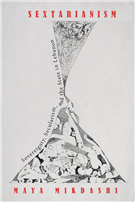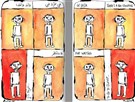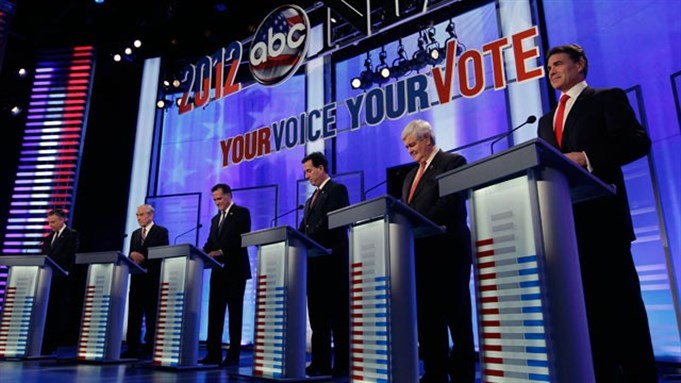Jeanette Feghali, known to millions across the world as Sabah, died last week at the age of 87. By the time of her death, she had been a star for almost seven decades.
Sabah began her career while still a teenager, moving from Lebanon to Cairo during the 1940s, the golden age of Egyptian cinema. Her image and voice are stored in more than eighty films, and by the time of her death she had recorded over three thousand songs written by generations of the region’s best poets, songwriters, and composers.
Her death sparked a period national mourning in Lebanon, bringing fans from all classes, regions, and ages together to celebrate her life. She was a national figure in a country that has always been unsure whether it is in fact a nation. She sang us through so many wars, seemingly always smiling. Her name reminded one to be hopeful—to expect a new morning even in the darkest of nights. In death, as in life, Sabah reminded people across that country to smile. Asad Abu Khalil put it this way:
What was great about her is that she really defied societal norms and religious taboos and did that rather quietly and without fanfare. She also in my opinion is one of the few Lebanese who really practiced non-sectarianism in her own life. She managed to live through the civil war and sing and talk without offending anyone, a great feat, and for that she died without enemies.
As anyone with even a cursory understanding of Lebanese history knows, to inspire people to smile and to make them happy—even if only transiently so— is no small thing.
While Sabah was loved as an actress and as a singer, her larger than life public persona also sealed her reputation as Lebanon’s premiere diva. Her hair was always perfectly and hugely coiffed, her dresses always bright and ornate, and her throaty laugh maintained its lustiness well into her eighties. She did not hide from the spotlight as she aged, as many female actresses and singers do. She did not settle into the background of a quiet life. Instead, she kept making music, granting interviews, and receiving guests until she passed. Her refusal to retreat silently backstage was often parodied in Lebanon: her multiple plastic surgeries, husbands and rumored lovers become fodder for many a crass joke. Hamed Sinno, lead singer and songwriter for Lebanese band Machrou’ Leila, commented on the multiple ways she serves as an inspiration for generations of Arab artists and musicians:
Apart from her vast contribution to the archive of popular and folk music in the Arab world, which she came to encapsulate for a period of time, Sabah’s greatest contribution to contemporary musicians is her own personal narrative. She lay down the tracks for so many artists currently trying to navigate the public eye, with her constant ability to navigate social graces despite her often-polarizing life choices. To this day, it seems quite difficult to imagine regional audiences welcoming a female public figure were that figure to speak as candidly of desire, lust, and a self-empowered thirst for life. In her dissonant ability to serve as both a cautionary tale, and an aspirational tale, she continues to be the embodiment of the Lebanese social paradigm, in all its/her heavily gendered self-contradictions. She is large. She contains multitudes.
Sabah is often compared to another Lebanese icon, Fairuz— and certainly the careers and personalities of both of these stars loom large over the history of popular Arabic music and its many divas. A generation older than Fairuz, Sabah seemed to embrace the spotlight with candor and humor—a larger than life woman who was never distant from her fans, admirers, and detractors. She lived her private life in the public eye—marrying and divorcing nine times and always appearing publicly with a handsome, decades-younger man on her arm. Her fans identified with her throughout her ecstasies and her tragedies in life and work, including the financial hardships that marked the last decade of her life. They felt like they knew and that she knew them, and this feeling of closeness perhaps marks the difference between her and Fairuz, despite the fact that their fan bases are largely overlapping.
While Fairuz represents Lebanon as it likes to imagine itself: transcendent, serious, beautiful, virginal, timeless, and poetic—Sabah represents a much more honest version of Lebanon: glamorous, colorful, tragic, obsessed with youth, funny, a little trashy, and lusty. It is the contradictory nature of Sabah that is inspiring to many: that she seemed to do what she wanted whenever she wanted and with whomever she wanted, the world be damned. In fact, Sabah was so important to the Lebanese imaginary that her funeral mass was given by that country’s Maronite Patriarch. There he was—a sectarian, sexist, and conservative religious leader—solemnly praying for a woman who married and divorced nine times, admitted to having affairs and "enjoying" many more men, and who didn`t care if those men were Christian or Muslim or purple, as long as she thought they were hot. Even in death, Sabah forced the most reactionary elements of conservatism and sectarianism to listen and to take note of her. She gave them no choice. Her insistence on living her complicated and contradictory life and art openly and proudly inspired many, including myself. When asked to comment on Sabah’s legacy, Yasmine Hamdan shared this sentiment:
Sabah was a dazzling woman with a golden voice and the most genuine smile. Her legacy to Arabic music and cinema is tremendous. She was wickedly gifted, joyful, unconventional and coquettish until her last breath. She inspired many of my songs and shaped some of my most beautiful memories. She`s a free spirit and will always remain a mischievous inspiration to me, like a sparkle
Years ago, I attended a fundraising event for a harm reduction and addictions treatment center in Lebanon. Sabah had donated a selection of her performance dresses to be modeled that night in support of the organization. After the event I walked backstage and into the dressing rooms. I was surrounded by Sabah’s dresses—those jeweled and embroidered bursts of color I had seen on television and in newspapers since childhood. I lifted some of them and was, perhaps naively, surprised by their weight. I wondered then, as I do now, how she moved and sang with so much grace under all of that weight.
But she did, always with a smile towards the camera. Always with a smile towards us. And for almost seventy years, we—her audience, smiled back—despite the weight of our shared and individual lives.
Sabah is survived by her son and daughter, Sabah Shammas and Howayda Mansy.
For more on Sabah’s life and legacy, see below:
Sahar Mandour: http://mobile.assafir.com/Article/168/386564-
http://www.almodon.com/culture/8b46b51c-d736-483e-bf14-e87ecc60076a فادي العبد الله
http://assafir.com/Article/17/387251 سناء الخوري
![[Beirut newspaper stand, the day after Sabah died. Image by Ahmad Gharbieh]](https://kms.jadaliyya.com/Images/357x383xo/photo(3).JPG)

















